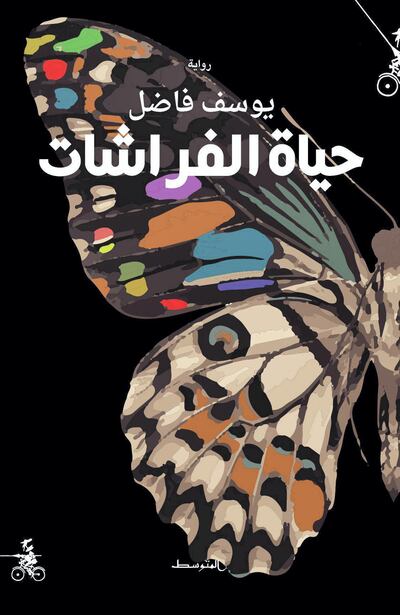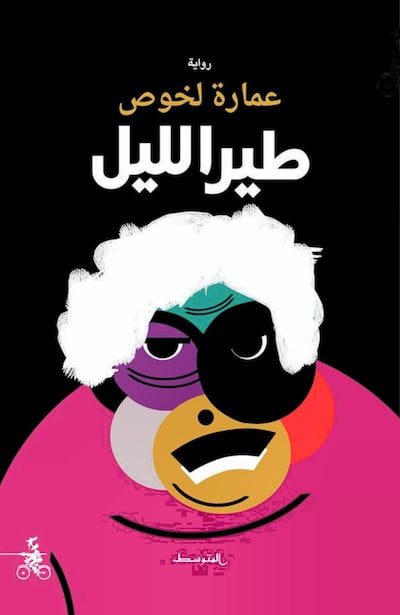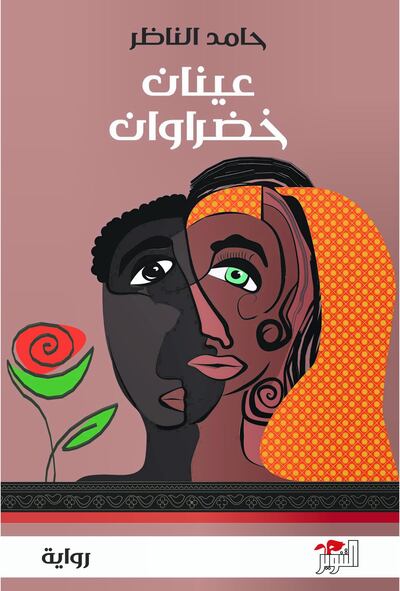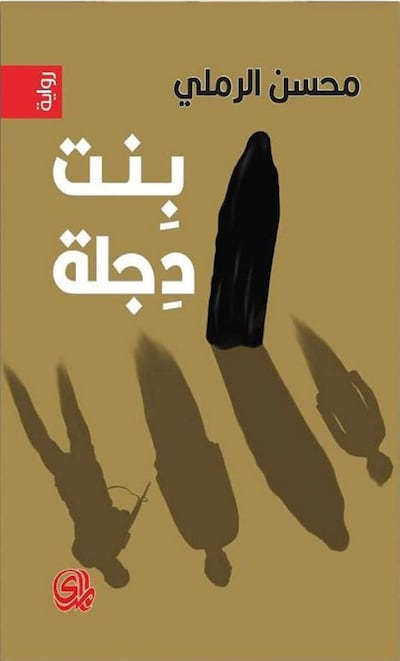Crime thrillers, documentary-like narratives and epistolary tales have the edge in this year’s longlist for the 2021 International Prize for Arabic Fiction.
The longlist, which was revealed on Monday, is comprised of 16 novels, telling stories of unsolved murders, disappearances and assassinations from Aden and Amman to Casablanca, Oran and beyond.
The novels were chosen from 121 entries, all of which were published in Arabic between July 2019 and August 2020.
The longlisted works address important issues facing the Arab world today, from the spread of extremist organisations to the position of women.
Chosen novelists are aged between 31 and 75 and hail from 11 countries, including Algeria, Egypt, Iraq, Jordan, Kuwait, Lebanon, Morocco, Saudi Arabia, Sudan, Tunisia and Yemen.
The longlist was chosen by a panel of five judges chaired by Lebanese poet and author Chawki Bazih.
Judging alongside Bazih are Mohammed Ait Hanna, a Moroccan writer, translator and lecturer of philosophy at the Regional Centre for Teaching Careers and Training in Casablanca; Safa Jubran, a lecturer of Arabic Language and Modern Literature at the University of Sao Paulo in Brazil; Ali al-Muqri, a Yemeni writer twice longlisted for Ipaf in 2009 and 2011; and Ayesha Sultan, an Emirati author, journalist, founding director of Warrak Publishing House and vice president of the Emirates Writers Union.
'The many tragic faces of Arab reality'
The longlisted works, Bazih said, encompass a variety of styles and penetrate the social and psychological fabric of Arab society. He added that the novelists have "written the true history of forgotten and marginalised people and places, and given voice to the weak and dispossessed".
“They have boldly exposed the many tragic faces of Arab reality and held regimes responsible for human rights abuse, the stealing of freedoms, persecution of women and their encouragement of violence, fundamentalism and wars,” Bazih continued.
Six shortlisted titles – chosen by judges from the longlist – will be revealed on Monday, March 29. The winner of the 14th Ipaf will be announced on Tuesday, May 25.
Here are the longlisted books:
'The Eye of Hammurabi’
The Eye of Hammurabi by Algerian author Abdulatif Ould Abdullah opens with the interrogation of a man in a military encampment after he flees from the angry inhabitants of Douar Sidi Majdoub. This district in the town of Mostaganem, Algeria, is named after a Muslim saint whose tomb he and his German friend raided for ancient artefacts. The novel follows the man's efforts as he seeks to clear his name from charges that range from conspiracy with foreign organisations to murder.
‘M for Murderer: S for Sa’id’
Written by Kuwaiti novelist Abdullah Albsais, this novel follows Majed, an investigator who stumbles across the memoirs of his police officer uncle, as he dusts off a 23-year-old closed case after the death of one of its suspects.
‘Hole to Heaven’
Hole to Heaven, written by Saudi Arabian author Abdulla Al Ayaf, takes us to the village of Majihira, a place filled with legends and folklore about death and daily life events such as marriage and divorce. Each character has their own story, beginning with Taima and, after her, Eissa, Farj, Ghaith and others. The final story is that of Fatoum, who departs the village after everyone in it has died, leaving behind only a palm tree that bears her name.
‘Notebooks of the Bookshop Keeper’

Set between 1947 and 2019, this novel by Jordanian poet Jalal Bargas is structured as several notebooks written by people facing different hardships. Some are on the verge of losing their homes, others are trying to find their families. The novel’s central character is Ibrahim, a bookshop keeper who attempts suicide, before meeting the woman who will change his life.
'Boxes of Desire’
Written by Lebanese author Abbas Baydoun, Boxes of Desire tells the story of the assassination of Aziz, a vocal critic of an Islamic organisation and a supporter of the Palestinian resistance. The narrator is Aziz's friend, who tries to get to the root of the murder while developing feelings for the deceased's former lover. Meanwhile, Israel occupies Lebanon and is resisted by the organisation. In the ensuing turmoil, Aziz's murderers are killed one by one.
‘The Orchards of Basra’
The Orchards of Basra, written by Egyptian novelist Mansoura Ez Eldin, is set in two different time periods. In present-day Minya, Egypt, Hisham Khatab is a young manuscripts dealer who is passionate about old books. After interpreting a dream in The Great Book of Interpretation of Dreams, ascribed to Ibn Sirin, he starts to believe he was someone called Yazid bin Abihi, who lived in the 2nd Hijri century (8th century AD) in Basra, Iraq.
‘The Life of Butterflies’
The Life of Butterflies by Moroccan writer Youssef Fadel attempts to fill gaps left in the history books with its account of the 1972 attempted coup in Morocco and subsequent events. Set in Casablanca, it begins with singer Salem being asked to read the official statement of the coup on the radio, after he had arrived to record a song. Events are divided according to the days of the week, with each day given a special title. The novel explores how power works and offers in-depth psychological portraits of its characters, whose destinies are interwoven.
‘The Calamity of the Nobility’
The Calamity of the Nobility by Amira Ghenim relates an important, untold story from Tunisia's contemporary history. Its hero is a historical figure, the reformer Taher El-Haddad. Although references do not mention anything about his relationship with women, except for his desperate defence of them, the author adds an imaginary love affair with a woman called Lella Zubaida to her fictional retelling of his life. The novel gives prominence to the voices of female narrators as custodians of memory who contradict a distorted, patriarchal version of history.
‘The Night Bird’
The Night Bird by Algerian Amara Lakhous is a tale of political and historical intrigue. In downtown Oran, north-west Algeria, on the morning of the anniversary of the country's independence, a former fighter in the struggle for freedom is found murdered. Kerim Sultani, head of the anti-terrorism unit, cuts short his holiday to take charge of the case. Three questions are on his mind: who killed Miloud Sabri? Why on this day in particular? And does this mean a return to the 1990s years of terror and the killings of opponents?
‘The Bird Tattoo’
The Bird Tattoo by Iraqi poet Dunya Mikhail is a painful novel about the sale of Yazidi women in Iraq by ISIS. It focuses on Helen and Elias, who fall in love and marry, and their experiences with the organisation. Alongside this tragedy, the novel sheds light on aspects of Yazidi folklore, which is rich in astonishing customs and legends.
‘J’
Written by Algerian novelist Sara al-Nams, the main protagonist of J is a poor young man from the Algerian city of Oran who decides to travel to the desert to escape from his traumatic past. On the bus taking him south, he meets a mysterious young woman called "J" who tells him about her experience of abuse by her father. The novel explores the dreams and pain of Algerian youth, the memory of the 1990s civil war, the crisis of language and identity, and how an individual can belong to a country and yet be a foreigner to his or her own body.
‘Two Green Eyes’
Two Green Eyes by Sudanese author Hamed al-Nazir is set against the background of armed struggle between the Sudanese government and the opposition supported by Eritrea. It follows Urfa, who is imprisoned in military camps in Wadi Al Aqiq. Urfa's green eyes make her stand out from the other women. As such, she suffers more than they do. When she manages to escape, she finds herself alone, pregnant and with nobody to support her. The novel explores the themes of suffering, surviving war and the determination of human beings to make their own choices.
‘Daughter of the Tigris’
In Daughter of the Tigris, Muhsin Al-Ramli shines a light on Iraq after the fall of Saddam Hussein's regime and the entry of American forces into the country, and follows his earlier title, The President's Gardens. It gives an insight into the worsening conditions experienced by the country in new forms: the emergence of parties and militias, looting, assassinations, rapes, explosions, the struggle for power and senseless killings.
‘File 42’
File 42, written by Moroccan author Abdelmeguid Sabata, follows two parallel storylines. In the first, Christine, a successful American novelist, and Rasheed, a young Moroccan researcher, embark on an investigation to find the unknown author of a forgotten Moroccan novel from 1989, in which Christine's father, Steve, appears as one of the characters. The second plot line is narrated by Zuheir, a rich and delinquent teenager who rapes an underaged maid.
‘Longing for the Woman Next Door’
Tunisian author Habib Selmi’s novel revolves around two neighbours with wildly different personalities and from polar opposite social backgrounds. The story explores the rich, turbulent and extraordinary relationship they develop.
‘Fruit for the Crows’
Fruit for the Crows by Yemeni writer Ahmed Zein tells a series of interlocking stories that reveal the struggle for power in the socialist regime of Aden, Yemen, in the 1970s and 1980s.

















